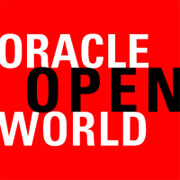
Oracle has entered into a definitive agreement to acquire NetSuite — the company its former chief marketing officer, Zach Nelson, cofounded in 1998 — for US$9.3 billion.
NetSuite offers various software packages as cloud-based services, including ERP, accounting, CRM and sales force automation.
What’s surprising about the deal is “why it took so long and why Oracle paid so much,” said Trip Chowdhry, managing director at Global Equities Research.
Oracle “should’ve purchased NetSuite five years ago at half the price,” he told CRM Buyer. “There are a lot of synergies between the two.”
The purchase “makes strategic sense because there’s no way Oracle can win the cloud wars,” Chowdhry observed.
After the Deal Closes
Oracle will provide guidance to NetSuite customers about the company’s product road map, it said. Further, Oracle’s global scale and cloud solutions — its SaaS, PaaS, IaaS and DaaS offerings — will help NetSuite’s 30,000 customers worldwide.
“Adding 30,000 NetSuite customers will help Oracle solidify its cloud credentials,” noted Seth Lippincott, lead ERP analyst at Nucleus Research.
That said, “the real test will be in a year’s time, seeing how many current NetSuite customers have stayed with their solutions,” he told CRM Buyer.
The switching costs for cloud-based software are much lower than for on-premises applications, Lippincott pointed out.
Oracle will invest heavily in engineering and distribution for both company’s products. In the meantime, NetSuite products and services will continue to be available through existing channels.
NetSuite customers “will want to watch to see if Oracle makes good on its promise to bring its R&D checkbook to NetSuite solutions,” Lippincott said.
Oracle’s Gains
The purchase will help Oracle in its battle for cloud revenue, said R “Ray” Wang, principal analyst at Constellation Research.
“NetSuite brings almost $800 million in revenue and grows the overall market share,” he told CRM Buyer. It “gives the Oracle customer an integrated cloud ERP, CRM and commerce suite.”
NetSuite is strong in manufacturing, retail, commerce and professional services, Wang noted. While Oracle addresses these areas with on-premises solutions, NetSuite “fills holes in Oracle’s cloud strategy in key verticals.”
Commerce “is a key battleground going forward,” he continued, “and NetSuite made significant progress with key brands. Those customers will benefit from the rest of Oracle’s marketing cloud and supply chain capabilities.”
Competition and Synergies
Buying NetSuite lets Oracle CEO Larry Ellison “keep NetSuite in the family to prevent competitors encroaching on Oracle’s market,” Wang observed.
Ellison is a majority shareholder in NetSuite.
Existing customers can continue with the status quo, and NetSuite will be able to leverage many of Oracle’s technical assets, Wang suggested, as Oracle “has had a good history with post-merger integration.”
Customers can expect to benefit from the synergies.
Oracle “has historically allowed its acquisitions to operate independently — in some cases, to be left to rot on the vine — so NetSuite maintaining some of its business independence is to be expected,” Nucleus’ Lippincott said.
However, “the level of investment Oracle makes into improving and maintaining NetSuite’s current offerings is the real question,” he added. “I would not be surprised if Oracle uses the acquisition to sell its extended cloud technology stack to existing NetSuite customers, but leaves the core NetSuite offerings relatively unchanged.”
Customers should try to renew on more favorable terms before Oracle takes over, Wang advised.
Prospects “can rest assured NetSuite will continue in operational capacity,” he said, while partners “can expect some changes in the program.”
Partners working with NetSuite may face some changes with re-entry into the Oracle Partner Network, Wang noted. While many NetSuite partners have been Oracle partners, they “should lobby Oracle to keep the programs separate, as NetSuite’s program is more partner-friendly.”
























































